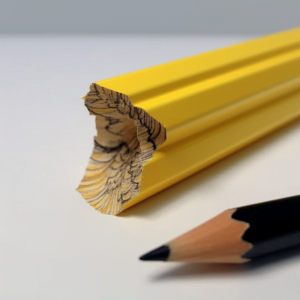
Polyptoton is a figure of speech wherein the same word or phrase is repeated in different grammatical forms. For example, “We shall fight the fight, we shall win the win!”
Polyptoton Playground: A World of Word Transformation
Welcome to the Polyptoton Playground, where words transform and play in different grammatical forms! This figure of speech is like a chameleon, changing its colors while staying true to its essence. Ready to dive into the world of Polyptoton? Hold on to your pens, and let’s explore!
Polyptoton is like a magical word potion that transforms words into different grammatical forms while still maintaining their core meaning. This literary device spices up writing, making it more engaging and fun for readers. It’s like a word party, and everyone’s invited!
To create a Polyptoton, simply take a word and change its grammatical form, such as switching from a noun to a verb or an adjective to an adverb. The possibilities are endless, so let your creativity run wild!
The Power of Polyptoton: Emphasis, Wordplay, and Expression
Using Polyptoton in writing is like adding fireworks to a celebration. It brings excitement and emphasis to a message, making it more memorable and captivating for readers. By transforming words, Polyptoton showcases the versatility of language and adds a playful element to writing.
This literary device can be used for various purposes, such as emphasizing a point, adding rhythm, or expressing emotions. The key is to choose words that lend themselves well to transformation, ensuring that the Polyptoton remains clear and effective.
Famous Polyptoton in Literature, Speeches, and Beyond
History is full of examples of Polyptoton, from literary masterpieces to memorable speeches. Here are some famous instances of Polyptoton that highlight its power and versatility:
- Shakespeare’s “Richard II”: In Act 2, Scene 3, Bolingbroke exclaims, “With eager feeding food doth choke the feeder.”
- John F. Kennedy’s Inaugural Address: In his famous speech, JFK proclaims, “Let us never negotiate out of fear. But let us never fear to negotiate.”
- Charles Dickens’ “A Tale of Two Cities”: The iconic opening lines of the novel feature Polyptoton, with the phrases “the best of times” and “the worst of times.”
Crafting Polyptoton: A Step-by-Step Guide for Word Magicians
Ready to become a Polyptoton magician? Follow these simple steps to create your own spellbinding word transformations:
- Identify the key message or theme: Determine the main idea or point you want to emphasize in your writing.
- Choose your word: Pick a word that can be easily transformed into different grammatical forms while maintaining its core meaning.
- Transform your word: Change the grammatical form of your chosen word, such as from a noun to a verb, an adjective to an adverb, or a singular to a plural.
- Weave your Polyptoton into your writing: Incorporate your transformed word into your sentences, ensuring that it adds emphasis, rhythm, or expression to your message.
Polyptoton Parade: Examples to Inspire
Let’s take a look at some original examples of Polyptoton to ignite your creativity and inspire your own word magic:
- The ambitious dreamer: “Dream the dream, and chase the chase. Believe in the belief that anything is possible.”
- The resilient warrior: “Fight the fight, and conquer the conquest. Stand tall in the face of adversity.”
- The compassionate friend: “Love the love, and care for the cared. Share the warmth of a kind heart.”
- The wise philosopher: “Think the thoughts that lead to wisdom, and question the questions that reveal truth.”
The Art of Polyptoton: A Literary Brush for Writers Everywhere
Polyptoton is a versatile literary brush that can paint vivid images, add emphasis, and bring playfulness to any piece of writing. Whether crafting an engaging story, a persuasive speech, or a thought-provoking poem, using Polyptoton can elevate your writing to new heights.
Remember, mastering the art of Polyptoton takes practice and a keen understanding of language. As with any skill, the more you use it, the better you’ll become. So, grab your pen or keyboard and start experimenting with Polyptoton today. Who knows? You might just create the next unforgettable phrase that will resonate with readers for generations to come!
If you’re thirsty for more writing knowledge, head over here to learn all 74 literary devices.





